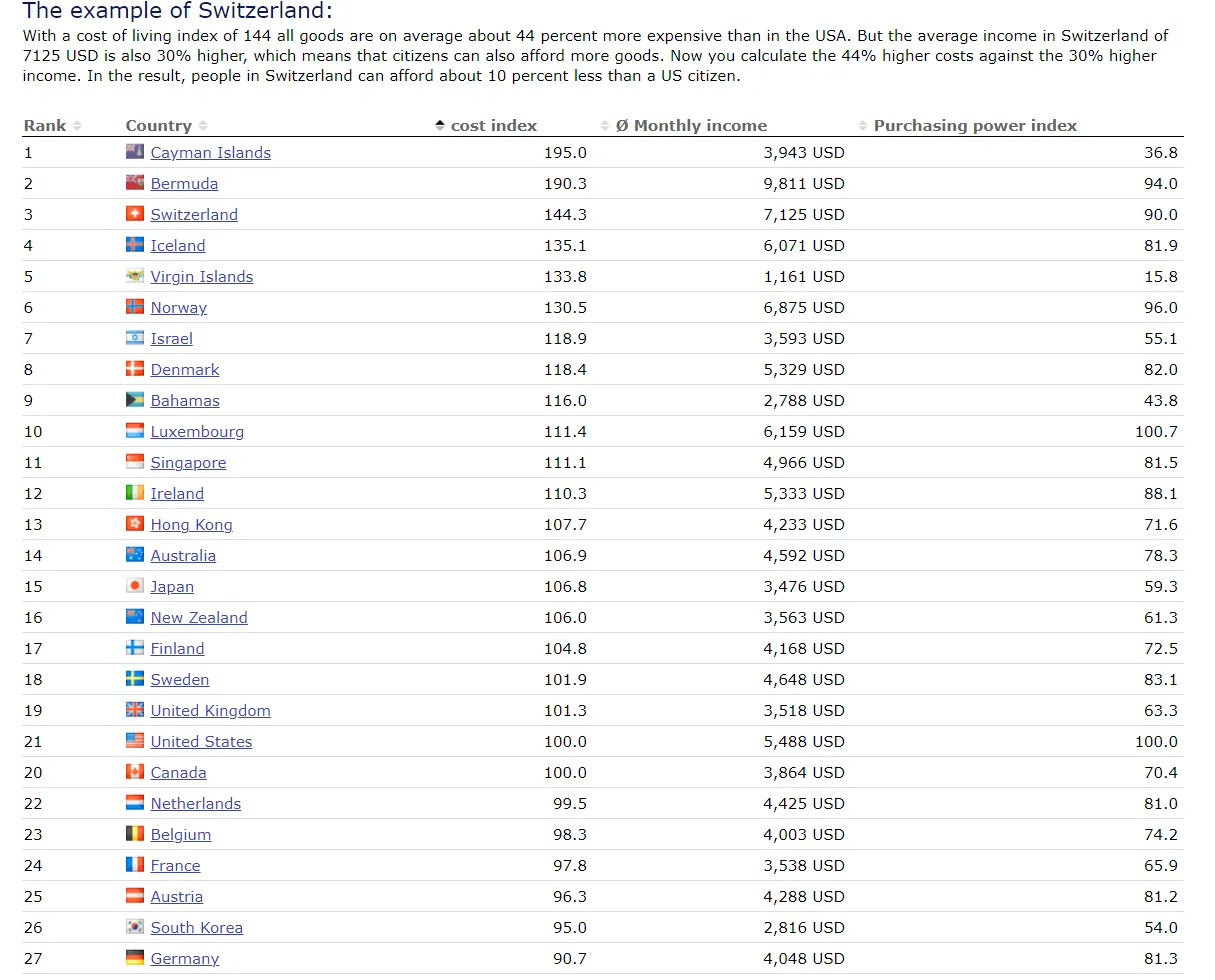
Introduction
Crypto heads tend to hate taxes and all things related to the government. It would seem obvious that minimizing your taxes would be the most optimal course of action.
Whether or not relocating to a tax haven makes financial sense or is otherwise a sensible decision depends on a lot of things. Age is one of them. It turns out that there is a lot that goes into deciding whether or not the decision to relocate is sensible.
A case study: Cayman islands
Let's assume for the sake of simplicity that you're a single person and that you have no dependents living with you when you relocate to the Cayman Islands. Let's assume that you have retired and that you live on a pension that may or may not be taxed in your country of origin. Let's also assume that you have capital income to live on and that you do not work. (I have no idea how easy it is really to settle in the Cayman Islands.)
No income or capital gains taxes
There are no income taxes or capital gains taxes on Cayman Islands. Public expenses are covered with fees collected from a large number of corporations, many of which are in the financial sector, registered in the country.
All your crypto income would be completely tax free. That sounds great.
Living expenses
Because Cayman Islands are a tax haven with little to no taxation and tight bank secrecy, the island nation attracts many high net worth individuals. Hence, real estate on Cayman Islands tends to be expensive.
Here are some listings of homes for sale on Grand Cayman, the main island:
https://www.cireba.com/cayman-islands-real-estate-listings/minprice_150000/maxprice_500000
About half a million USD gets you a nice 900 sq ft condo or a 1500 to 2000 sq ft house in a non-prime location. I would say that given the fact that the islands are in the middle of nowhere and have only a population of 60,000 these prices are a bit on the expensive side.
As for other living costs, according to
https://www.worlddata.info/cost-of-living.php
Cayman Islands have the highest cost of living index in the world:

That isn't exactly surprising. Developed Island nations like Cayman Islands typically have to import most of the food consumed in them. Much of the expat population is wealthy and is not bothered by paying a little extra.
The cost of living on Cayman Islands is twice as high as in the United States on average. Even Switzerland is substantially cheaper to live in.
Healthcare costs
For retirees in particular, the cost of healthcare is very relevant.
The law requires that everyone buy a health insurance plan. The legal minimum Standard Health Insurance Contract costs $200 a month per person but comes with strict limits of $120,000 per year per and a lifetime maximum of $1.2 million per person with limited access to foreign healthcare services. (Sums in USD)
Source: https://www.caymanhealth.com/2020/04/19/health-insurance-in-the-cayman-islands/
The average cost of a coronary artery bypass surgery in the US was $123,000 in 2018.
Source: https://livelyme.com/the-costs-of-bypass-surgery/
If cost is anything like that, then the annual limit of the minimum plan are exceeded just by one large heart surgery.
Suppose you get cancer, the likelihood of which is high between 60 and 75 years of age. You may require several surgeries and ongoing treatment like chemotherapy or expensive medication for a length of time.
It is therefore not likely that an inexpensive insurance like that can even be sold to an elderly expat willing to move to the island.
The more comprehensive packages available without vision and dental cost up to $900 CI or $1080 (US) per person per month.
If you live in Canada, Western Europe, Australia or New Zealand (not sure about Japan, South Korea or Singapore) that have universal coverage healthcare systems, the best coverage for all serious illnesses and emergencies is covered for you with taxpayer money.
Conclusion
If you need, say, $3000 a month to maintain your lifestyle in one of the first world countries mentioned above, you're likely to need $6000 per month to maintain the same standard of living on Cayman Islands.
Suppose your after-taxes pension is $2000 per month. You'd need $1000 a month in capital gains + whatever the tax man takes in your home country. On Cayman islands you need a total capital income of $4000.
You won't be paying any taxes on it. But since the capital gains tax rate is in the range of 20% to 45% depending on various factors in most normal first world countries, your before taxes capital income would be to be around $1500.
It is hardly surprising that it is said that few expats who work on Cayman Islands can afford to retire in the place.
You'd need quite a bit more capital to make up for the $2500 monthly or $30,000 annual difference. Let's say your capital income is 7% a year. You'd need $428,000.
If you're middle class, moving from, for example, Europe to Cayman Islands to retire there does not make sense financially. If you're a millionaire and you like year-round summer, then it may make sense.
For Europeans, there are low-tax regimes much closer to home. In Portugal cryptocurrency income is not taxed at all except if you're a professional trader. Several well-known Hive users have relocated to Malta or Portugal.